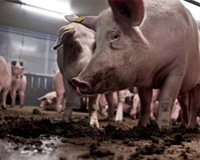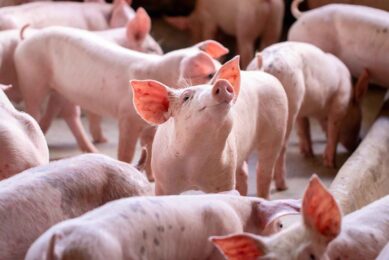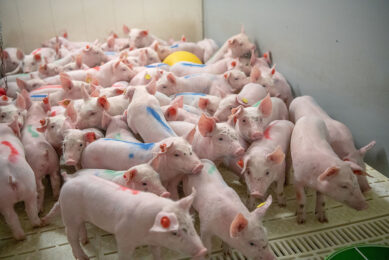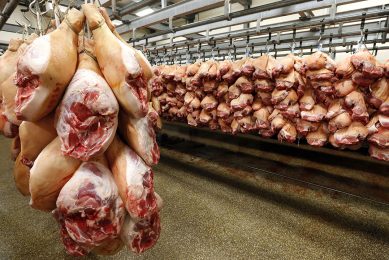Transmissible gastro-enteritis on two pig farms in Peru

An outbreak of transmissible gastro-enteritis (TGE) has been reported to have struck two small farms around Lima, Peru, early November. In total 72 out of 159 pigs have been reported to have become infected, of which eight died.
The bigger farm of the two was located in the town of Huachipa, in San Juan de Lurigancho, a district within Lima. The farm had 40 sows and 105 piglets. Sixty piglets were reported sick and five piglets of about 15 days old had died.
The smaller farm was a backyard facility, in the town of Ventanilla, just north of Lima. Here were seven sows and seven (infected) piglets, of which three had died at the age of seven days.
In both cases it is not known where the infection came from. Control measures applied included the disinfection of infected premises; no vaccination; no treatment of affected animals.
Coronavirus
The information reached the Organization for Animal Health (OIE) on November 30 and was reported since the disease is a listed disease. Its causal agent is a coronavirus.
It is the first time Peru has reported a case of TGE since 2005. In the Americas only Canada, USA, Mexico, and Cuba have reported the disease to the OIE’s database since 2005. TGE is an important disease of swine in most countries around the world caused by a coronavirus resulting in both epidemic and endemic disease in pigs.
In the epidemic form of TGE, typical clinical signs include transient vomiting, watery, yellow diarrhea which may contain undigested milk, weight loss, dehydration, and high morbidity/mortality, especially in pigs less than two weeks of age. One of the most notable signs is the smell of the diarrhoea. Many pigs older than three weeks of age will survive but are likely to remain stunted.
Related website:
• Organization for Animal Health











